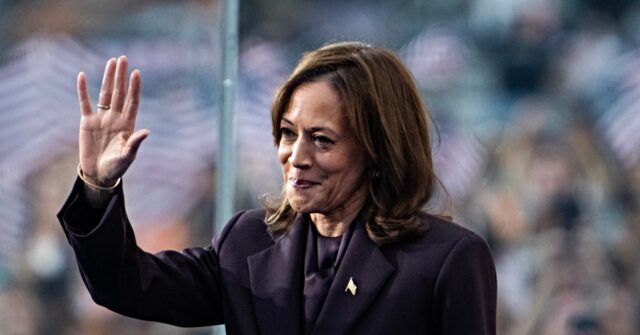As 2028 approaches, speculation grows around Vice President Kamala Harris considering another presidential run. Insiders within the Democratic Party suggest that despite her mixed performance during the 2020 election, her early primary poll numbers could drive her ambition to try for the presidency again. A well-connected Democratic strategist indicated that Harris’s desire remains strong, observing that professional Democrats in Washington have begun to rally around her, viewing her previous campaign as nearly flawless, despite its struggles to distinguish her from President Joe Biden. Comparisons have been made to a backup quarterback stepping in too late in a game, suggesting that while she performed as well as possible under the circumstances, she still fell short of the expectations placed upon her.
Harris’s political journey showcases both advantages and challenges that could shape her candidacy in the future. On the positive side, her votes in previous elections are notable, as she received more recorded votes than most candidates in history, trailing only Biden in 2020 and Trump in 2024. Additionally, the reality of U.S. politics is such that winning the nomination presents any candidate with a fifty-fifty chance of winning the presidency, which, despite her prior shortcomings, puts her in a potentially strong position. However, significant criticisms continue to surround her, particularly regarding her lackluster political skills and inability to effectively handle unscripted situations. This consistent struggle raises questions about her ability to improve as a candidate and her overall effectiveness in a primary election context.
The criticism extends to her rapid rise in the political landscape, which some believe impacted her candidacy negatively. The meteoric journey, transitioning from district attorney to senator to vice president, has created what some call an identity crisis for Harris. The perception is that without a clear political identity or vision that resonates with voters, she has been viewed ch cautiously, which has hampered her growth as a candidate. For Harris to succeed in the future, analysts argue that she must cultivate her political identity separate from her aspirations and articulate her beliefs to not only increase her effectiveness but also reassure voters of her potential as a leader.
Nonetheless, the primary process poses a significant challenge for Harris in 2028. Whereas she enjoyed unopposed favorable conditions in the previous cycle, Democratic nominating contests rarely favor candidates without established bases of support. Although recent polls show her with a notable percentage of Democratic primary support versus lesser-known opponents, the issues she faced in her last campaign, including an unsuccessful debut and failure to garner widespread support, are likely to resurface during the primaries. Key doubts linger around her ability to rise above past challenges and navigate the competitive primary landscape effectively.
Given the experiences leading to her previous campaign’s early exit from the race, many strategists express skepticism about her ability to turn the tide by 2028. Some commentators even joke about her potential need for drastic changes to her public persona, such as adopting an English accent, just to give off an impression of intelligence that seems currently absent in her oratory. This reflects general disillusionment regarding her capability to make meaningful improvements in her political approach and connect with voters on a deeper level.
In conclusion, while Harris’s potential candidacy for the presidency in 2028 can be framed as a story of resilience and ambition, significant hurdles lie ahead. The mixture of her polling strength, challenges from the political climate, and her ongoing struggles with effective communication places her in a precarious position. The upcoming years will be critical for her; to gain traction, redefine her political identity, and regain the trust of primary voters, she will need to demonstrate substantial growth, clarity in her beliefs, and an aptitude for navigating 21st-century electoral dynamics successfully. Only time will tell if she can harness her political ambition into a compelling narrative that can carry her through the arduous journey to the presidential nomination.

